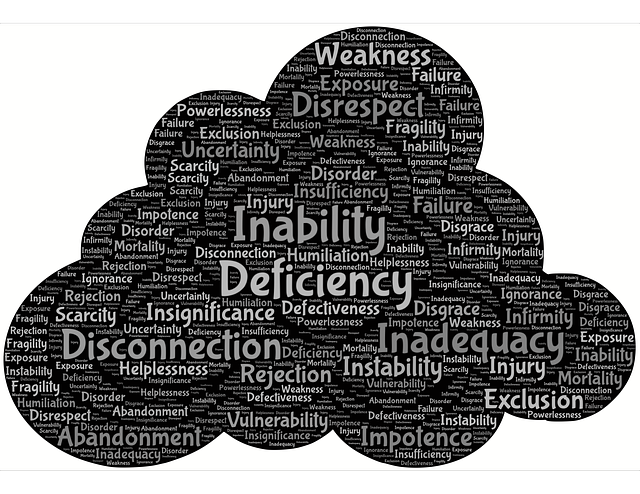Most leaders, if not all leaders, face a moment in their leadership path where the gravity of their position hits them. They suddenly realize that they do not know what their doing. The Imposter Syndrome sets in.
This happens to all of us. Despite our past success of getting promotions, out-performing colleagues and excellent work on projects, we are suddenly hit with a moment of doubt, despair and disassociation with the truth. And what’s worse, people are trusting us to be the best and most organized. Team members look to us for answers, but what if they find out that the we actually aren’t as great as we feel we should be or that we really don’t have all the answers. What if they find out that we got lucky getting this position, but that maybe we aren’t the most qualified for it? What if they find out that…[gulp!]…we’re Imposters?!
Sound familiar? This moment of disbelief in abilities is called the imposter syndrome. It is real and devious.
Common Causes
The Imposter Syndrome can have a variety of different sources. Below are four of the most common ones:
- Newness – If you are new to a situation, you may feel you don’t belong. You walk into your first meeting and everyone seems to know everyone and everything. Ugh. It’s a terrible feeling. Oh man, I could go on and on about this one.
- Failure – Failed recently? Or maybe things didn’t go as you wanted them too? It hurts. No matter how many platitudes we read about how failure is part of the process of learning and growing, failure is not fun (well…most of the time anyway).
- Glass ceiling – Glass ceilings are interesting beasts. I’ve written about them. They’re not just for women. Any minority in an organization has an increased risk of feeling that people like them just don’t get promoted above a certain level. Perceiving that a glass ceiling is preventing you from achieving your goals can also cause self-doubt about your abilities. Glass ceiling beliefs also have tremendous negative effects on performance and overall feelings of hope (one of my main research topics).
- Lack of fit – Fit is one of the most critical determining factors of success in the organization. If you feel you don’t belong, you face many similar feelings to the glass ceiling. Upon entry into a new company I was handed a Myers Briggs personality test. My results showed that I was the exact opposite of 75% of the entire 100,000+ people in the organization. That didn’t help me feel any better.
- Someone in a similar position that you feel is better than you – Ok, research papers don’t talk about this one, but, in my opinion, this is one of the most common causes of the Imposter Syndrome. We’ve all been there. We’re cruising along, then we meet someone else that seems to have all the answers or seems to have things in more order than we do. At that moment we may think “Oh, what the heck am I doing here?! I’m not like that person!”
- IMPORTANT TO NOTE – There are a variety of causes for two similar scenarios to the Imposter Syndrome called depression and burnout. This article is in reference to the sudden imposter feelings that tend to come and go in life, but if the disbelief in oneself remains or is chronic, there could be additional factors that could be harmful. If this is the case, this is normal, but you may need to seek additional help.
If you have felt any of these ways, please understand that THIS IS NORMAL! It is absolutely normal! In fact, feeling this way puts you in the company of some great influential people including George Bush (father and the son), Bill Clinton, Barrack Obama, Phil Jackson, Dennis Rodman, Jack Welch, Bob Iger, Amy Poehler, Jimmy Fallon, Kelly Clarkson, Adele, Lady Gaga…(wow, this list really says a lot about me. Politics, basketball, business, and entertainment. That about sums me up, I guess.) This was just off the top of my head. There are many, many more.
Consequences of the Imposter Syndrome
It is important that we resolve feelings of The Imposter Syndrome because they can have tremendous effects on our future. When we feel like imposters, we may also:
- Avoiding opportunities to shine, which is lame because we most likely took advantage of those opportunities to get to where we are today.
- Work independent of others, which is lame because if we’re looking to make a difference in the workplace, then we need our team.
- Communicate a lack of confidence to superiors and colleagues, which is lame because we may cast doubt in the minds of our supervisors how good we really are.
- Over prepare for projects in efforts to avoid failures, which could be seen as good, but it could also come across as trying too hard.
- Dedicate even more to work, which is lame because of all of the additional sacrifice we’d have to make such as family, friends, self and sleep! (I could write a whole article on the importance of sleep)
Overcoming the Imposter Syndrome
There are three main ways to overcome the Imposter Syndrome:
- Recognize it exists. Well done! By reading this article, you are already on your way! Just being able to recognize that you felt great last week, but this week you’re a doubty Doug or doubty Debra can show you that something is off. If you feel like this, then maybe you need to Shake it Off (Taylor Swift anyone?)
- Go through a list of your accomplishments. Have someone help you create a list of recent accomplishments and go through them. You’ll be tempted to downplay your success, but resist the temptation. Most likely you’re going to find that you do know what you’re doing and you do know what you’re talking about.
- Read biographies. I know. This is a weird one. I love biographies. Once you read enough of them, you start to find a trend. The Imposter Syndrome tends to effect everyone at some point. We look at people and see their greatness, but at the time they were earning their greatness, they felt like an average person, struggling through life. Recognize that you are earning your greatness and while books may not be written about you, you are important to those in your circle of influence. Keep going.
In summary, the Imposter Syndrome is real, but not insurmountable. Recognize it, accept it, then move on. In the words of the late Heath Ledger in 10 Things I Hate About You,” Don’t let anyone, ever, make you feel like you don’t deserve what you want. Go for it!” That applies to yourself. Don’t let yourself make you feel you don’t deserve what you want. Go for it!
What are some other ways that have helped you overcome the Imposter Syndrome? Comment below. Share with others. Check out our growing list of content at https://www.leader411.com/blog-for-leaders-life-and-leadership/



